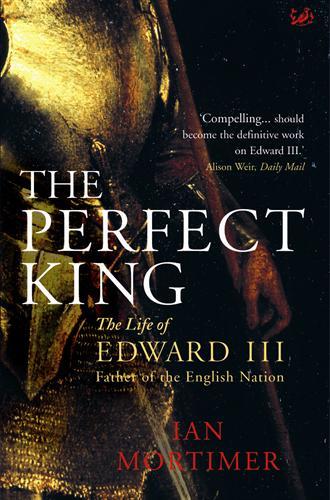home > books > Perfect King |
Ian Mortimer |
The Perfect King
The Life of Edward III, Father of the English Nation
He ordered his uncle to be beheaded; he usurped his father's throne; he started a war which lasted for more than a hundred years, and taxed his people more than any other previous king. Yet for centuries Edward III was celebrated as the greatest king England had ever had, and three hundred years after his death it was said that his kingship was perhaps the greatest that the world had ever known.
In this first full study of the man's character and life, Dr Ian Mortimer shows how Edward personally provided the impetus for much of the drama of his fifty-year reign. In particular he shows how Edward did more than any other monarch before or since to create the English nation as we know it today. Edward overcame the tyranny of his guardians at the age of seventeen,and then set about developing a new form of awe-inspiring chivalric kingship. Under him the feudal kingdom of England became a highly organised, sophisticated nation, capable of raising large revenues and deploying a new type of projectile-based warfare, and without question the most important military nation in Europe. Yet under his rule England itself experienced its longest period of domestic peace in the middle ages, giving rise to a massive increase of the nation's wealth through the wool trade, with huge consequences for society, art and architecture. It is also to Edward that we owe our system of parliamentary representation, our local justice system, our national flag and the English language as the 'tongue of the nation'
All this leads us to wonder why he is normally overlooked in a list of England's greatest kings. The answer is simple: nineteenth century historians saw in him the opportunity to decry a warmonger, and painted himas a self-seeking, rapacious, tax-gathering conquerer. Yet as this book shows, beneath the strong warrior king was a compassionate, conscientious and often merciful man, resolute yet devoted to his wife, friends and family. Through his personal relationships, he emerges as a strikingly modern figure, to whom many will be able to relate. That is not surprising, as the majority of English people alive today are descended from him. He is therefore a father of both the English nation and the English people, and consequently stands alongside William I as one of the two most important medieval figures in the history of England.
